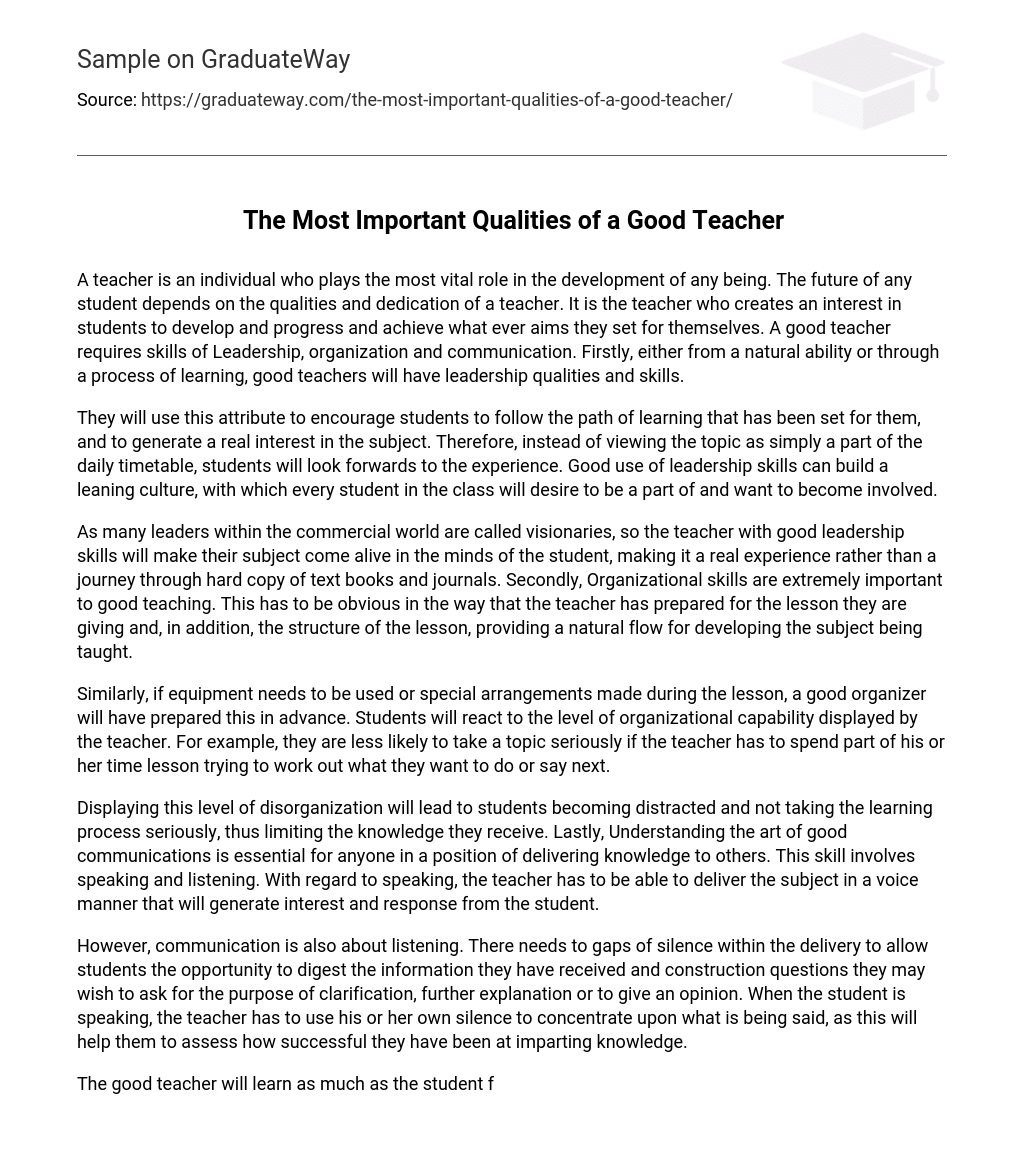A teacher is an essential figure in the growth and advancement of individuals. Students’ success hinges on the attributes and commitment of their teachers. Teachers inspire students to cultivate and excel in their pursuits. Leadership, organization, and communication skills are vital for being a successful teacher. These qualities can be innate or acquired through learning.
Using this attribute will motivate students to follow the designated learning path and develop a genuine interest in the subject. Instead of treating it as just another item on their daily schedule, students will eagerly anticipate the experience. Effective utilization of leadership skills can cultivate a culture of learning that every student in the class aspires to be a part of and actively engage with.
Just as leaders in the business world are often referred to as visionaries, a teacher with strong leadership abilities can bring their subject to life for students, turning it into a genuine experience rather than a mere exploration of textbooks and journals. Another crucial aspect is organizational skills, which play a vital role in effective teaching. This should be evident in how well-prepared the teacher is for the lesson and the overall structure of the class, ensuring a seamless progression in the learning of the subject matter.
Similarly, if there is a need for equipment usage or special arrangements during the lesson, a proficient organizer will have prepared this beforehand. Students’ response to the teacher’s level of organizational ability is noteworthy. For instance, if the teacher spends time during the lesson figuring out what to do or say next, students are less likely to take the topic seriously.
Exhibiting such disarray can result in students getting diverted and not giving sufficient attention to the learning process, thereby restricting their acquisition of knowledge. Ultimately, possessing the proficiency of effective communication is crucial for individuals tasked with imparting knowledge to others. This aptitude encompasses both speaking and listening. Specifically, the educator must be capable of engaging the students through an engaging vocal delivery that sparks interest and elicits a response.
Active listening is essential for effective communication, so it’s important to incorporate moments of silence during delivery. This allows students time to process information and ask questions for clarification or further explanation. When a student speaks, the teacher should stay silent to assess their effectiveness in conveying knowledge.
The connection between a skilled teacher and a student is mutually beneficial, as they can learn from each other. The achievement of a student largely relies on the competence of their teacher, which encompasses leadership, organization, and communication skills. While these abilities are essential, proficient teachers should also utilize their unique talents to actively engage students and help them achieve their goals. However, a teacher who lacks any of these skills cannot be considered competent.





